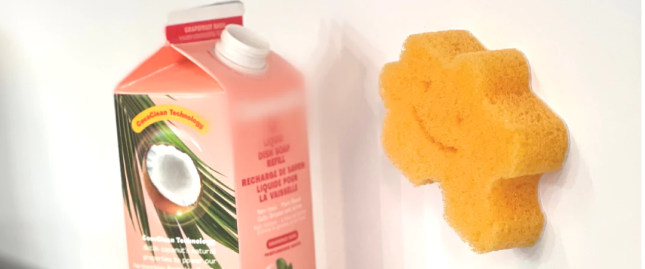Shamanism Without Prejudice

Many Koreans have a love-hate relationship with traditional shamans, or “mudangs” as they are called here. While it is not unusual to find a practitioner around the block, they are still widely frowned upon by the majority of the public.
Jeong Ho-geun, a 58-year-old veteran actor better known as a shaman nowadays, has experienced such prejudice firsthand since he decided to become a shaman in 2014.
His friends started dodging his calls and people left him “like the parting of the Red Sea,” he said.
“There is a prejudice toward shamans. ... It’s as if being a shaman stops you from having a normal life, that you see ghosts all the time, and are possessed all the time. That you face financial difficulties,” Jeong said.
“Why is that? Why should shamans not lead a normal life? I don’t think shaman is such a lowly line of work.”
From actor to shaman
Jeong said his calling came when he was in elementary school, but he refrained from accepting it for decades because of inherent prejudices against the profession.
“My grandmother was a shaman in her village. And my father was ashamed of her, a woman who would go into the mountains and pray for his good fortune. With no good reason, he wanted to hide the fact that his mother was a shaman.
“I got that (prejudice), too, from an early age. ... My mother would tell me not to say anything to anyone, to shut my mouth. So naturally, I came to believe that it was not a good profession. With no good reason.”
Jeong began his acting career in 1984, gaining fame through memorable supporting roles including the vicious Korean Japanese detective in “Street King,” a 1999 MBC drama series about thugs and low-lifes during Japan’s 1910-1945 colonial rule of Korea. But he said he could no longer deny his calling when he started seeing the spirits while shooting.
“I was at a crosswalk, and just went down on my knees, for my children,” he said. Refusing to accept a spirit would have brought bad fortune upon the family and passed down to his children, he said.
Jeong’s acting career has been on hiatus since he became a shaman, although not by his own choice. He said casting directors have shown reluctance toward casting a known shaman, but he wants to continue acting.
Unlike the relationship between his grandmother and his father, Jeong said he has no shame concerning his career.
“I say to my children that this is the path I’ve chosen, and you have yours. This is just a career, and the only difference is that I see, hear and feel certain things. They may have such abilities, too, and that’s nothing to feel weird about,” he said.
Shamans in Korea
It is unclear exactly how many shamans are in South Korea. Statistics Korea tallies the number of those engaging in the work of “fortunetelling and related services” to be around 10,000, with the most recent figures of 2019 at 10,745. Quite many Koreans seek out shamans for advice.
According to Hankook Research’s January survey of 1,000 adults, 41 percent said they had gone to a fortuneteller in last five years. Interestingly, 23 percent of people who identified themselves as Christian believers also said they had their fortune told.
However, when asked whether they trust the results, only 21 percent of the respondents said yes.
Yet, many do not perceive being a shaman as an acceptable career path. In an extreme case illustrating that, Seoul police last month arrested a man in his 60s who beat his sister -- a shaman -- to death for "dragging his daughter to shamanism."
The negative perception toward traditional shamanism dates back to the modernization of Korea in the last century, according to Yi Yong-beom, a professor of cultural heritage at Andong National University.
With the nation focusing on the importance of science, shamanism was viewed as an “unscientific and irrational superstition” that should be removed in order to construct a modern society, he explained.
“Korean society has consistently pursued modernization that was modeled after Western society, and has transformed accordingly. Through such active pursuit of changing society, the folk religion -- including shamanism -- and the traditional lifestyle related to it was considered symbol of decivilization, an obstacle of modernization, and thus considered a bad custom that should be eradicated,” he writes in his paper “An Examination on the Negative Viewpoint on Korean Shamanism in Modern Korea.”
Envisioning change

Jeong currently runs a shrine in northeastern Seoul. He also has a show on YouTube that features him counseling celebrities.
Jeong’s calm demeanor and polished looks are a far cry from the stereotypical image of Korean shamans in heavy makeup and brightly colored clothes with a flamboyant attitude. This was a deliberate choice, as he seeks to change the public image of shamans.
“I wanted to show (the public) that shamans are not people that act wild, and someone you can point fingers at,” he said.
The actor-turned-shaman pointed out that Korean shamanism needs to have a system for education and maintaining the quality of its practitioners, like other major religions. His ultimate goal is to found a school with an established curriculum that would include character education, rather than to simply pass on the skills and format of shamanism.
“I think one’s character is the basic foundation (of a person). It’s the same with the religious people as everyone else. Anyone can do the performance and carry out the rituals. But I want people to learn the proper attitude and responsibilities of what it means to be a shaman.”
Source: Yoon Min-sik, Korea Herald
More Korean Innovation News

The Rise of Womance: Women Spearhead Korean Entertainment

A Korean Marriage Story

Jwipo, Your New Jerky Obsession

To Binge or not to Binge?

The K-pop Comeback: Returning from Military Service

Longcations: Escaping to Vietnam

Kkondaes at Work: GenZ and Millennials Battle at the Office

The American Bansang Experience


